Casa Higienópolis: a São Paulo mansion reborn to display the best of Brazilian style and history
Casa Higienópolis is the latest revival project by retail company Iguatemi, a mansion merging neoclassical style and Brazilian flair
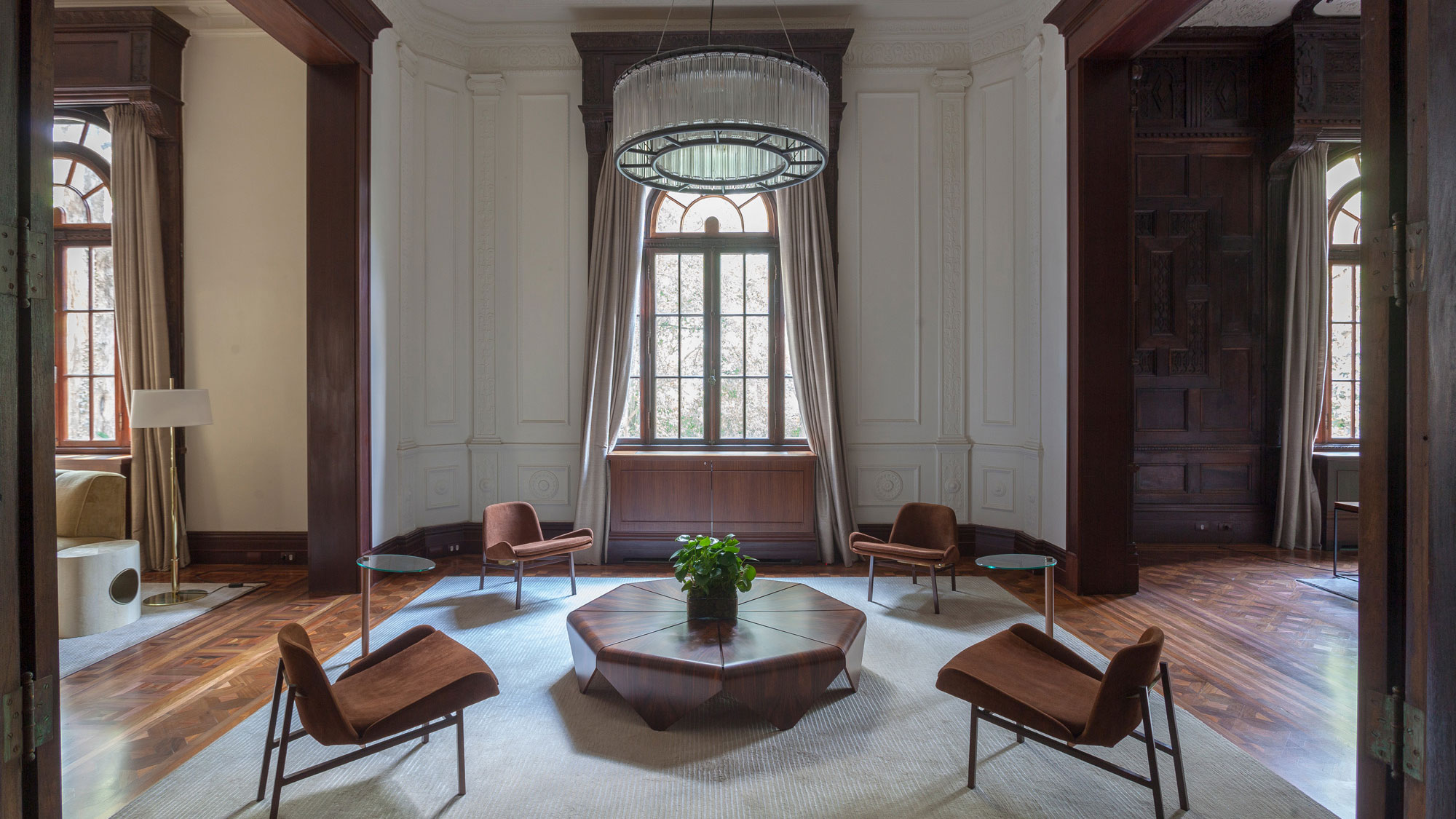
Tuca Reinés - Photography
Brazil’s long-established agency for the preservation of culturally significant sites and buildings, the Institute for National Artistic and Historical Heritage (IPHAN), has been successful in protecting many of its modern architectural icons, among them Oscar Niemeyer’s Brasília Cathedral and Affonso Eduardo Reidy’s Museum of Modern Art in Rio de Janeiro.
But in a country with plenty of historically significant architecture – from baroque to brutalist – there have been misses, the result of politics, scarce resources, and other challenges that every country faces in its preservation efforts.
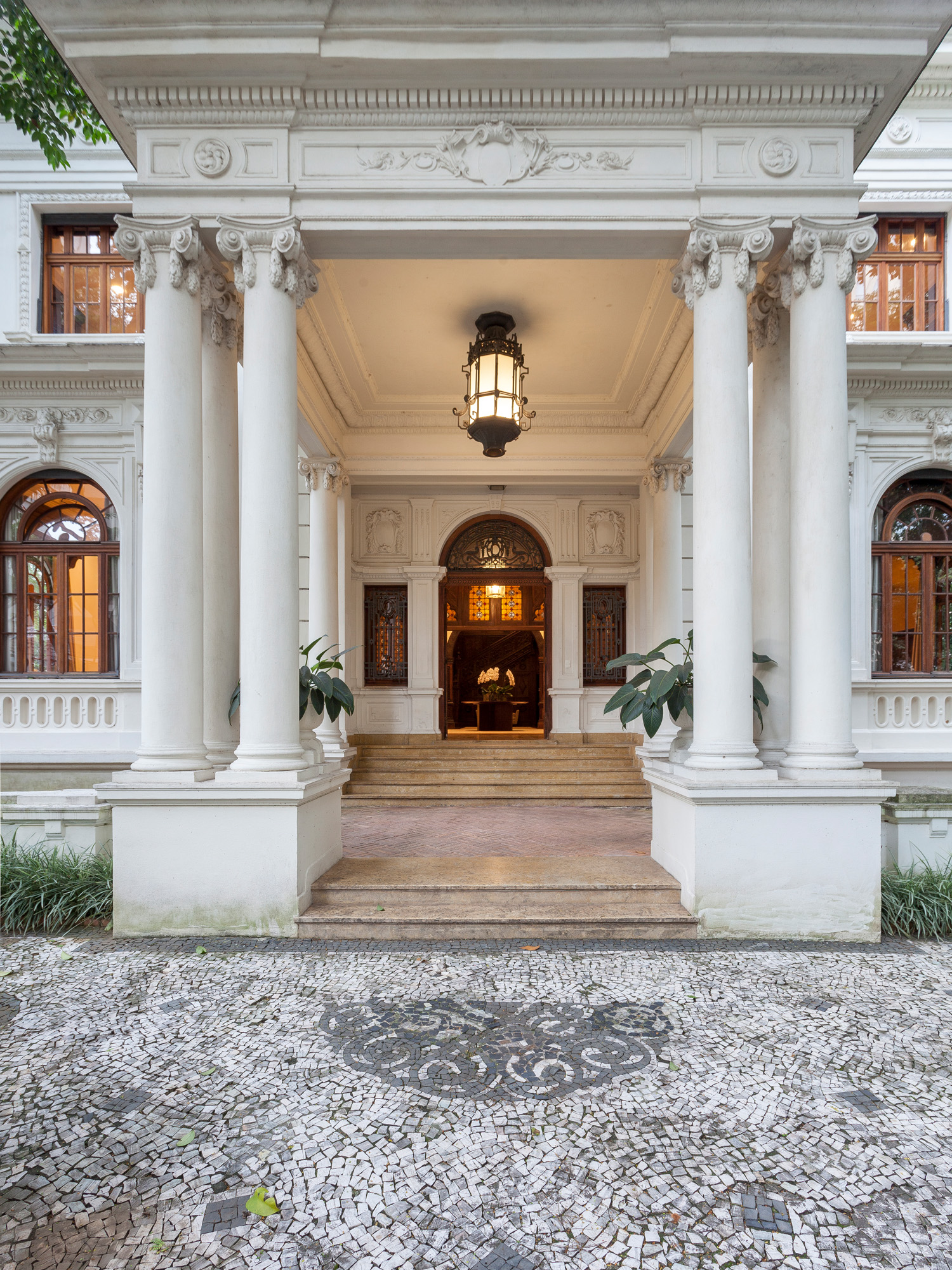
The entrance to the mansion
Most notably in São Paulo, the opulent mansions built by sugar and coffee barons in the mid-to-late 19th and early 20th centuries have all but disappeared, despite their unique place in the city’s history. Progress has been made in the form of legal protection for the few homes that remain. But protection is one thing, restoration is quite another. The hefty bill that comes with the latter often falls on patrons of the arts such as Carlos Jereissati.
‘These buildings are part of our DNA. They are part of who we are, the history of our city, and broader Brazil. We can’t let them disappear,’ says the former CEO and current board member of Iguatemi, the company that introduced the shopping mall to Brazil during the late 1960s. ‘We need to lead by example in these things, to show the bright side of our culture, in the past and now, during our time.’
Casa Higienópolis: Iguatemi's latest revival project
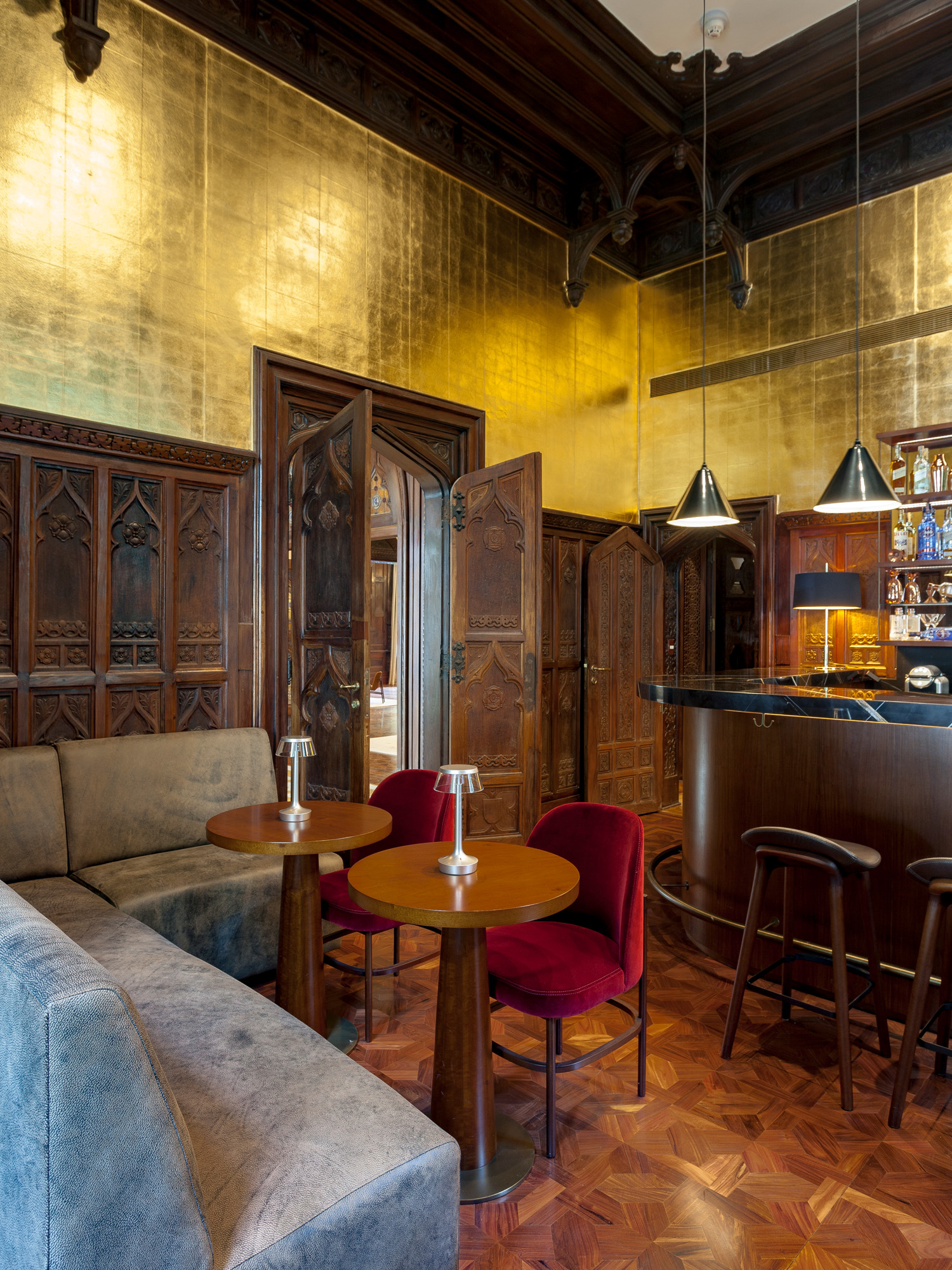
Casa Higienópolis’s gothic-style wood panels and doors are now complemented by gilded walls, modernist café tables and contemporary Flos lighting in the bar area
Jereissati’s commitment to preservation has only grown with practice. Iguatemi’s latest revival project, Casa Higienópolis, is the company’s third. In 2014, he acquired an essential but overlooked steel and glass home inspired by Ludwig Mies van der Rohe’s Farnsworth House and restored it to create Casa Jereissati.
Earlier this year, working with Lissa Carmona of furniture maker Etel, he transformed modernist icon Jorge Zalszupin’s former home (a key example of modern Brazilian design) into Casa Zalszupin, a museum dedicated to the designer’s legacy.
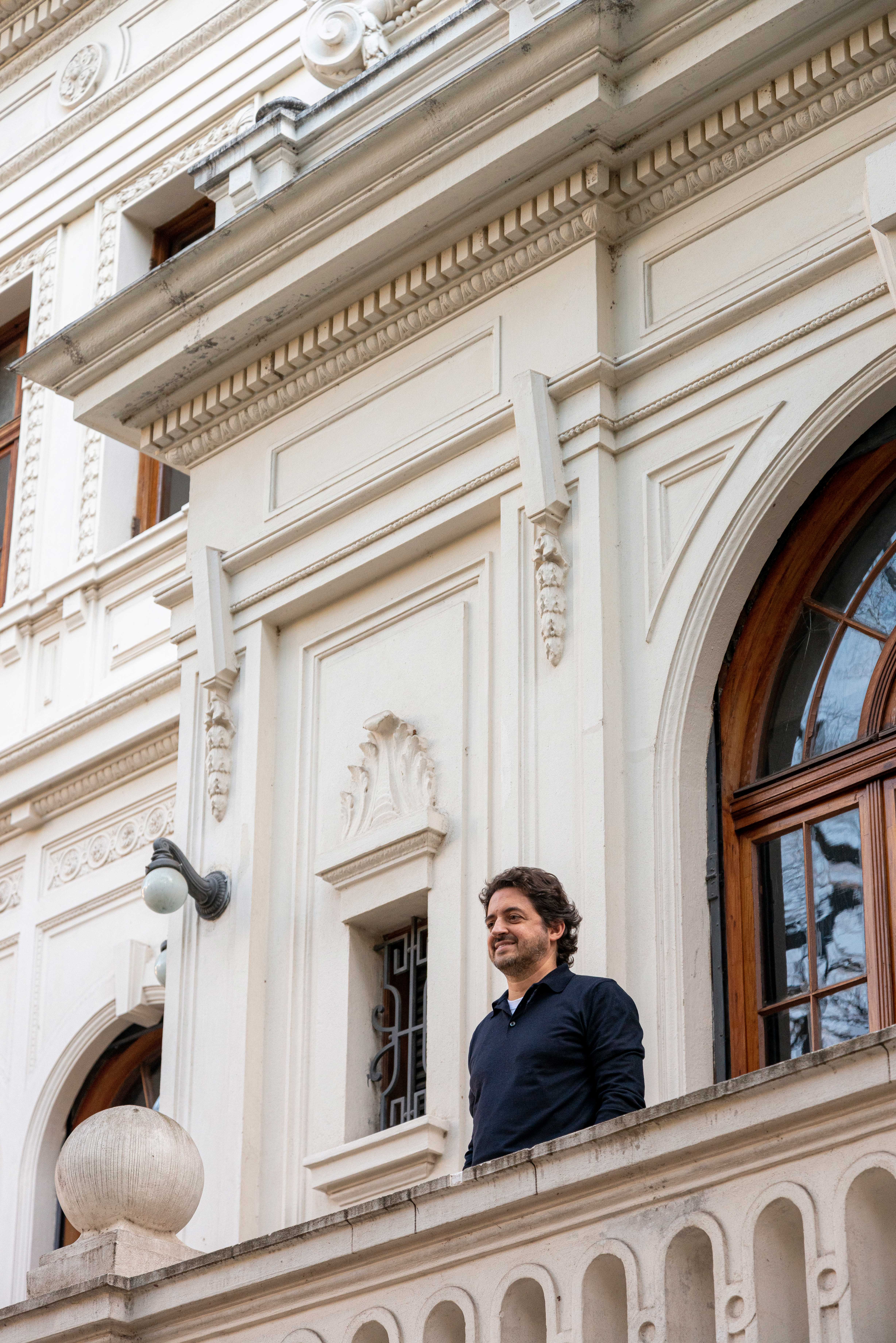
Carlos Jereissati at Casa Higienópolis
Casa Higienópolis is located in its namesake neighbourhood, one of the city’s most noble. The five-storey, 2,400 sq m, French neoclassical-style mansion was commissioned in 1927 by Carlos Leôncio Magalhães, a wealthy coffee farmer, entrepreneur and financier of the era, known as the ‘King of Coffee’. Today, the mansion sits in stark contrast to its surroundings. Higienópolis comprises mostly midcentury high-rises, such as Edifício Louveira and Edifício Bretagne, which helped redefine this upscale neighbourhood in the late 1950s.
Wallpaper* Newsletter
Receive our daily digest of inspiration, escapism and design stories from around the world direct to your inbox.
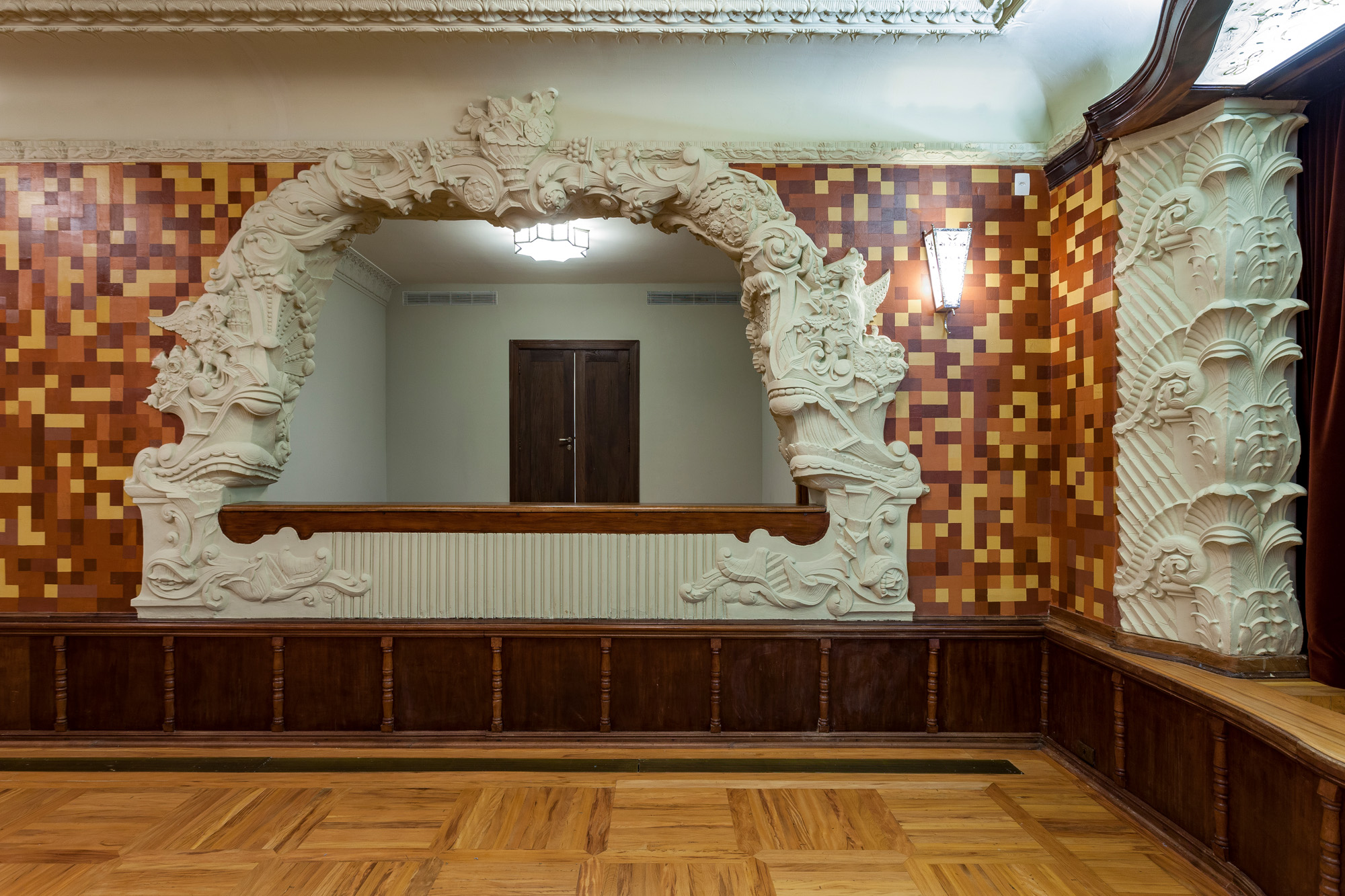
Original architectural fixtures
Inside, neoclassical design mingles with Brazilian flair. The mansion’s 40 rooms are replete with French-inspired period details, including intricate, handcarved woodwork and ornate plaster ceilings. It has all been painstakingly restored, providing a stunning juxtaposition to Zalszupin’s modern furniture used throughout, and a portion of Iguatemi’s contemporary art collection.
Highlights include works by Rio de Janeiro-based artist Chiara Banfi, who looks to the world of music to inform her installations and sculptures. It all gives visitors a deep and varied sense of Brazilian history, a gift to not only Iguatemi’s customers and partners, but also the city.
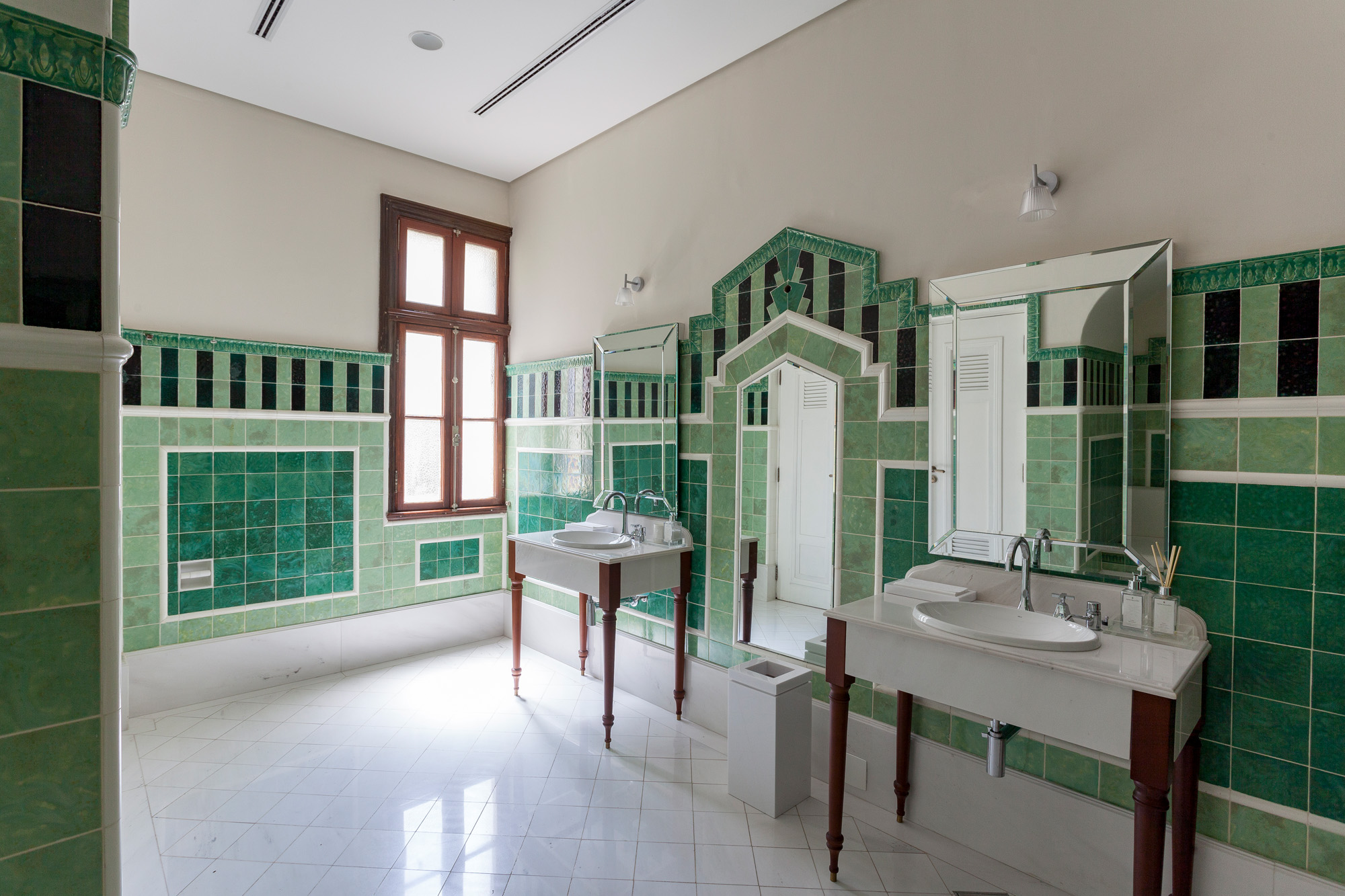
Art deco-inspired bathroom
In keeping with its restored sister properties, Casa Higienópolis will be used for everything from fashion events and VIP client luncheons to accommodation for visiting fashion industry figures; it will also host an extensive calendar of public events. The first is a new architectural walking tour of the neighbourhood, created by Iguatemi and operated out of Casa Higienópolis.
‘We are not typical shopping mall owners. We don’t just rent out spaces, but are committed to inspiring our clients and neighbours,’ says Jereissati. ‘My vision for Iguatemi has always been about celebrating the best of Brazil.
A version of this article appears in the December 2022 Entertaining Issue of Wallpaper*, available in print, on the Wallpaper* app on Apple iOS, and to subscribers of Apple News +. Subscribe to Wallpaper* today
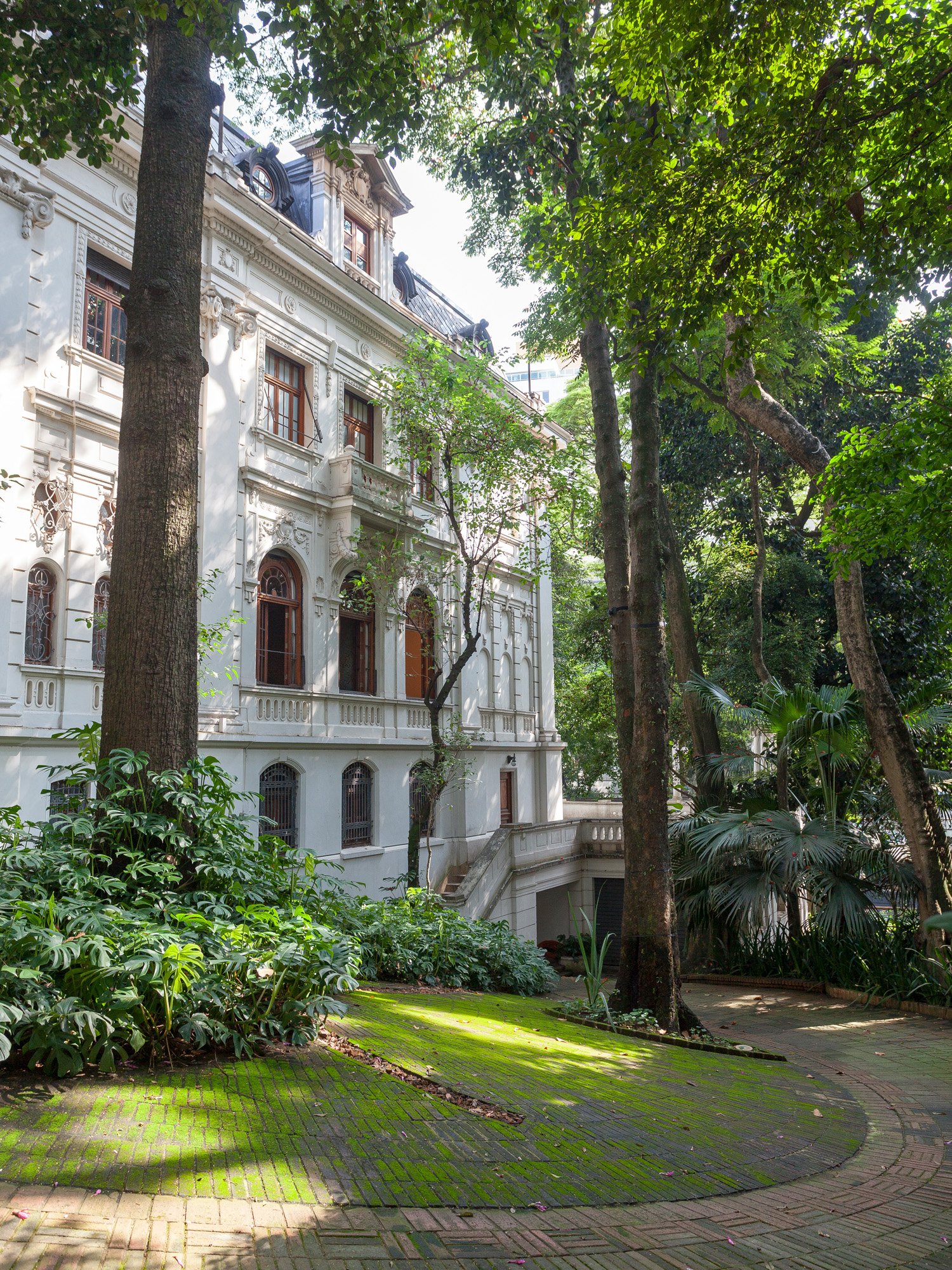
The mansion's exterior immersed in the garden's greenery
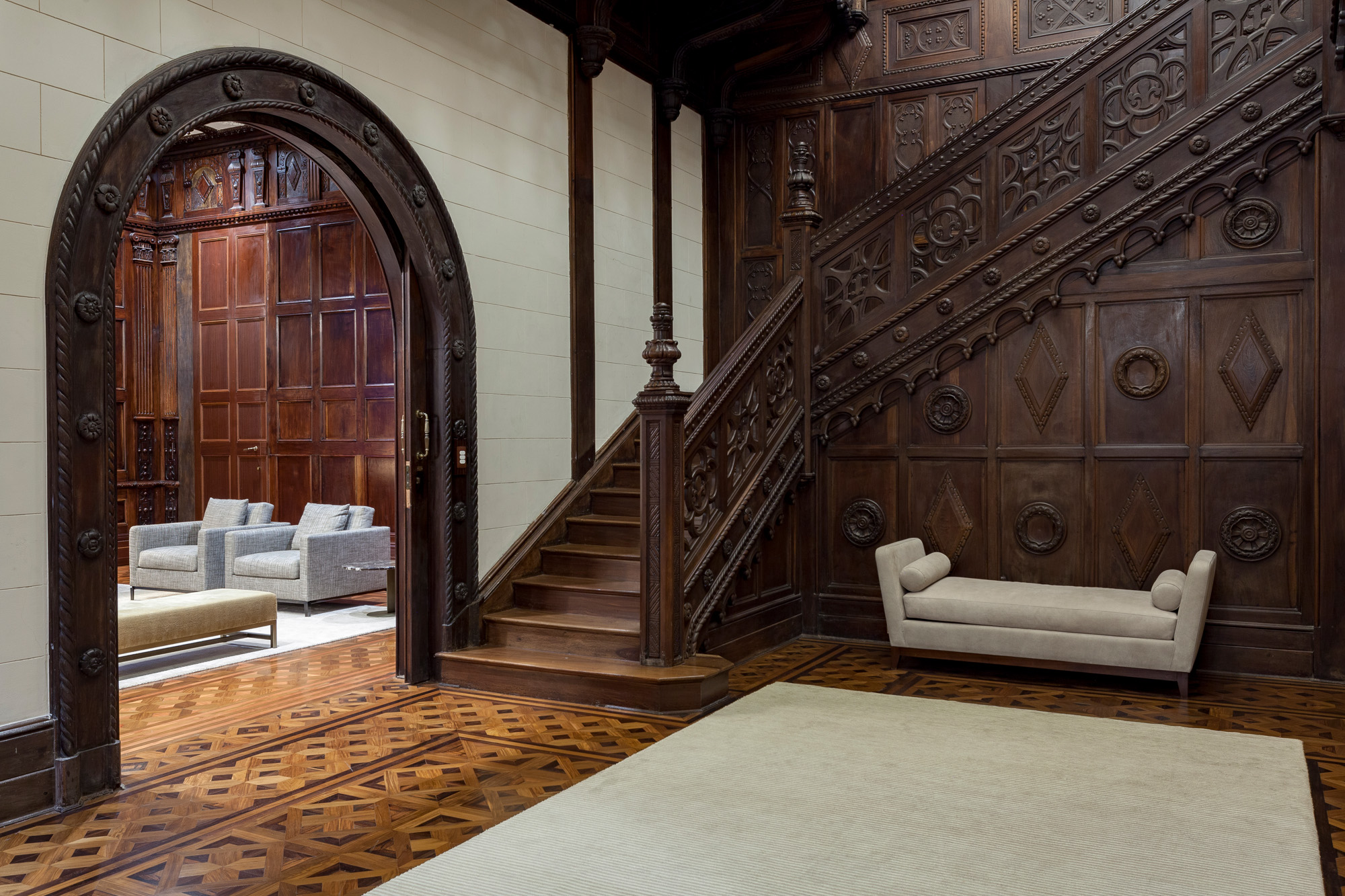
Scott Mitchem is one of the longest-tenured Wallpaper* contributors, joining the team in 1999 after attending Purdue University and moving to New York City from his hometown of Chicago. He started as an editorial associate, later served as Brazil Editor-at-Large while living in São Paulo, and is currently a contributing editor based in Miami. Scott covers design, architecture, travel, and all things Brazil while working as an executive in design and real estate development and working towards a Master’s Degree at Georgetown University. He has written for many other publications and was one of several authors who recently contributed to The Architecture of Studio MK27, a book by Rizzoli chronicling the history of the acclaimed Brazilian architecture studio founded by Marcio Kogan.
-
 Nikos Koulis brings a cool wearability to high jewellery
Nikos Koulis brings a cool wearability to high jewelleryNikos Koulis experiments with unusual diamond cuts and modern materials in a new collection, ‘Wish’
By Hannah Silver
-
 A Xingfa cement factory’s reimagining breathes new life into an abandoned industrial site
A Xingfa cement factory’s reimagining breathes new life into an abandoned industrial siteWe tour the Xingfa cement factory in China, where a redesign by landscape specialist SWA Group completely transforms an old industrial site into a lush park
By Daven Wu
-
 Put these emerging artists on your radar
Put these emerging artists on your radarThis crop of six new talents is poised to shake up the art world. Get to know them now
By Tianna Williams
-
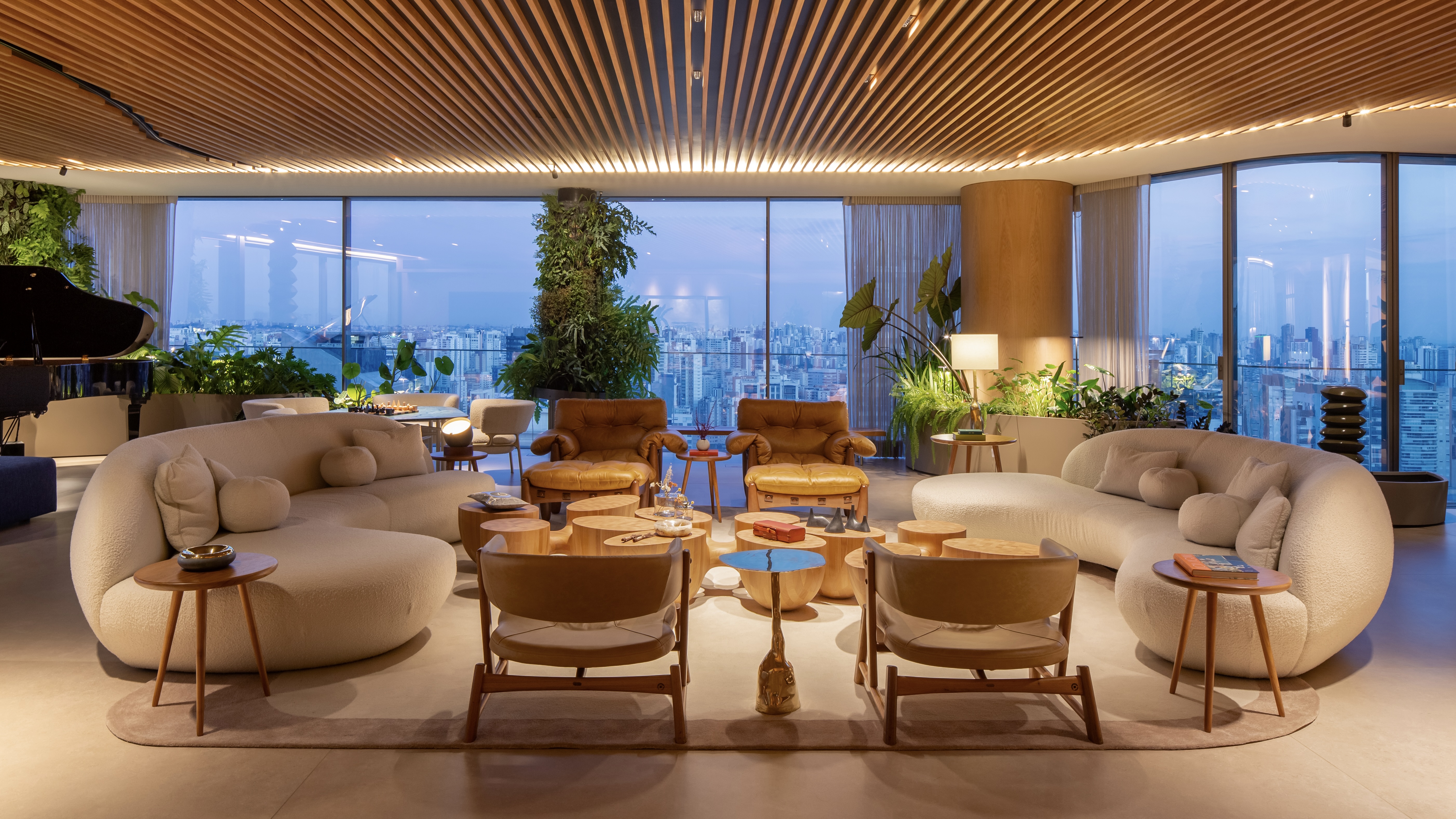 This São Paulo apartment combines wood-clad interiors, biophilia and show-stopping city views
This São Paulo apartment combines wood-clad interiors, biophilia and show-stopping city viewsThe Andre Luque-designed Heritage apartment features a retractable open plan, a plethora of natural materials and self-irrigating plants
By Anna Solomon
-
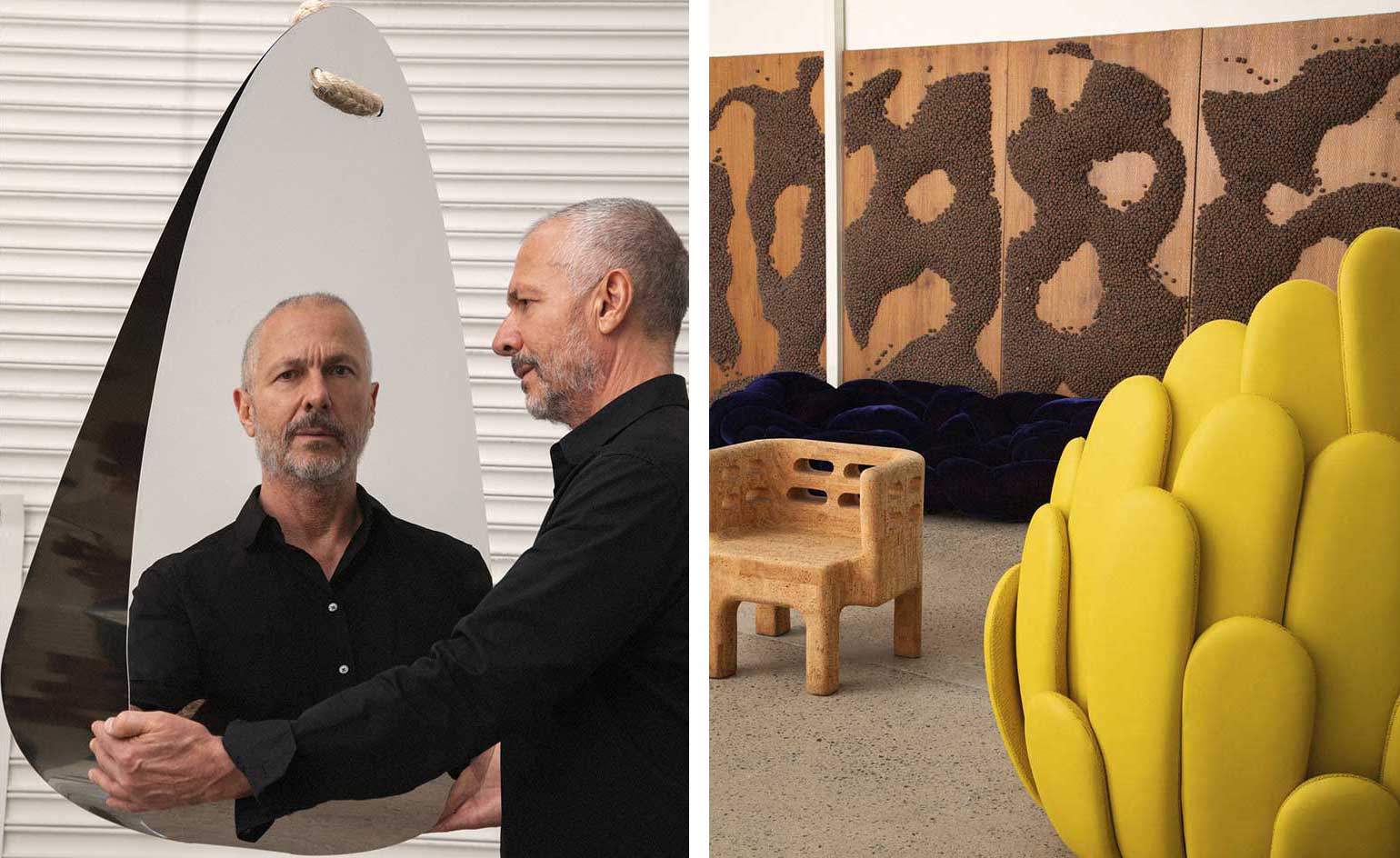 Humberto Campana welcomes us to his new São Paulo studio
Humberto Campana welcomes us to his new São Paulo studioAs one half of Estudio Campana, Humberto Campana built a reputation for elevating found objects into playful furnishings. We visit his new São Paulo studio as he embarks on a solo career
By Beta Germano
-
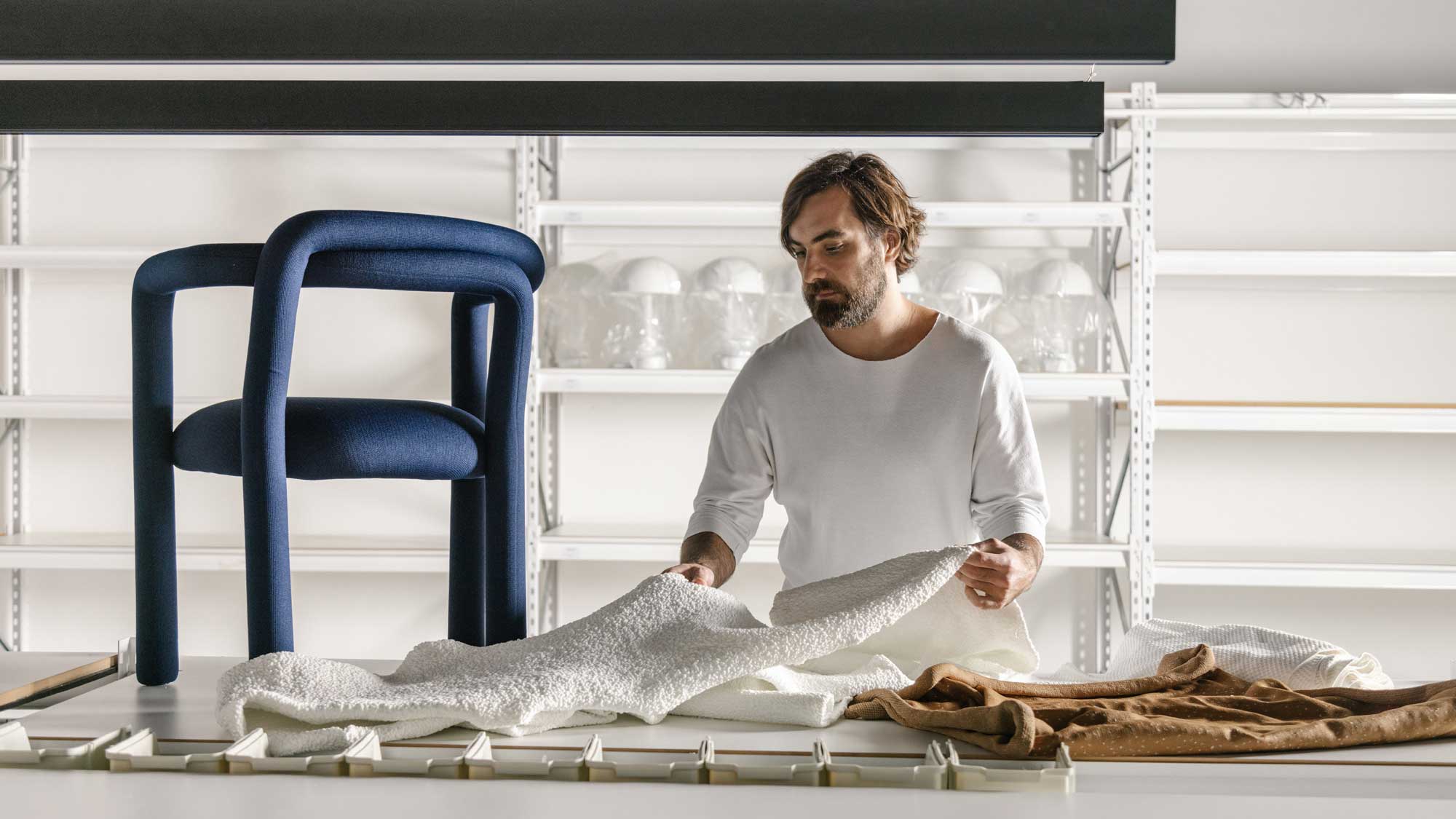 Wentz presents innovative furniture incorporating ocean plastic waste
Wentz presents innovative furniture incorporating ocean plastic wasteThe ‘Mar’ collection by Guilherme Wentz is informed by the sea and features computerised 3D-weaving techniques to transform ocean-borne plastic
By Scott Mitchem
-
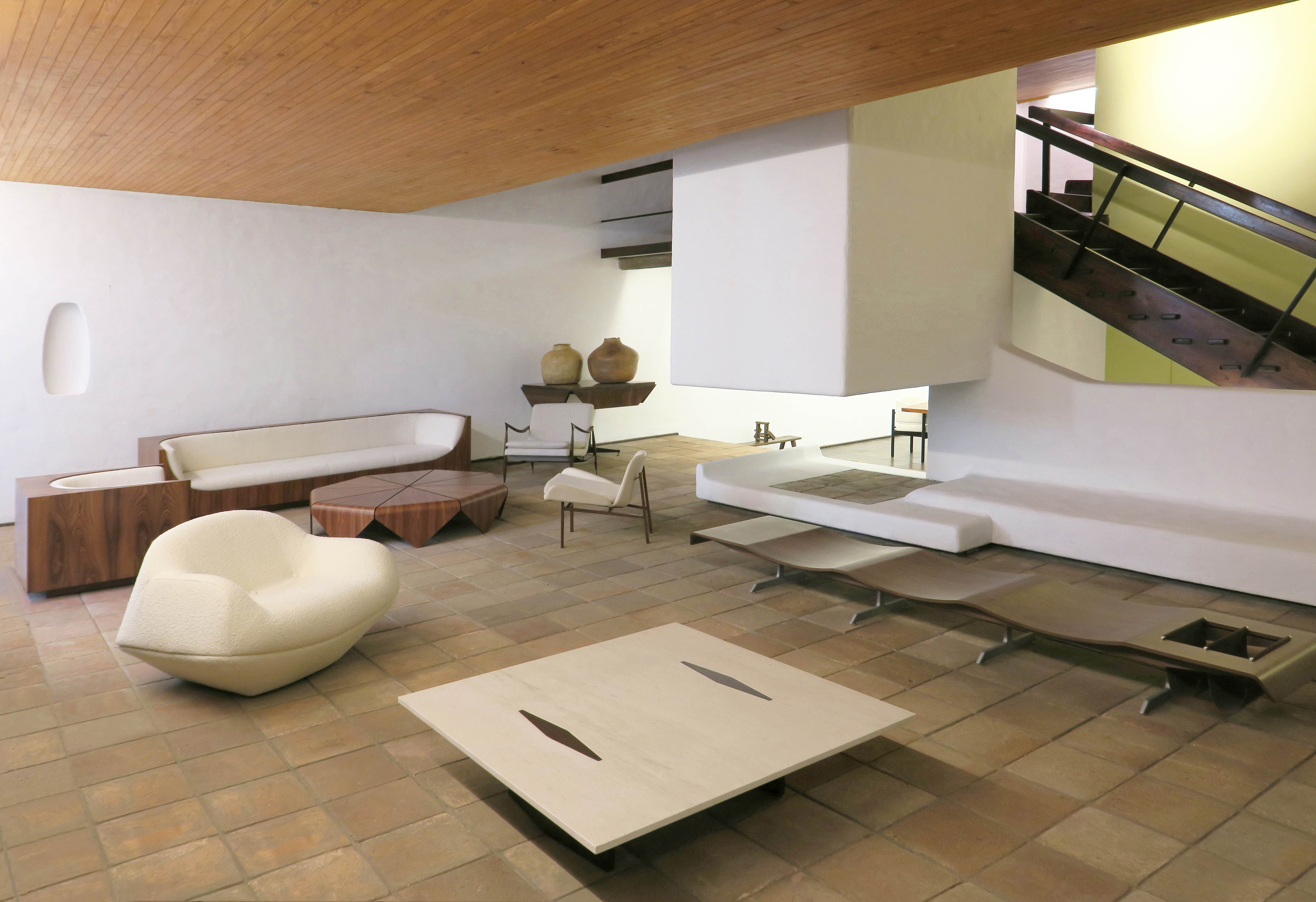 Step into Jorge Zalszupin’s design legacy
Step into Jorge Zalszupin’s design legacyLed by Brazilian design brand Etel, Casa Museo Zalszupin preserves the Brazilian designer’s legacy and celebrates his impact on the design world
By Rosa Bertoli
-
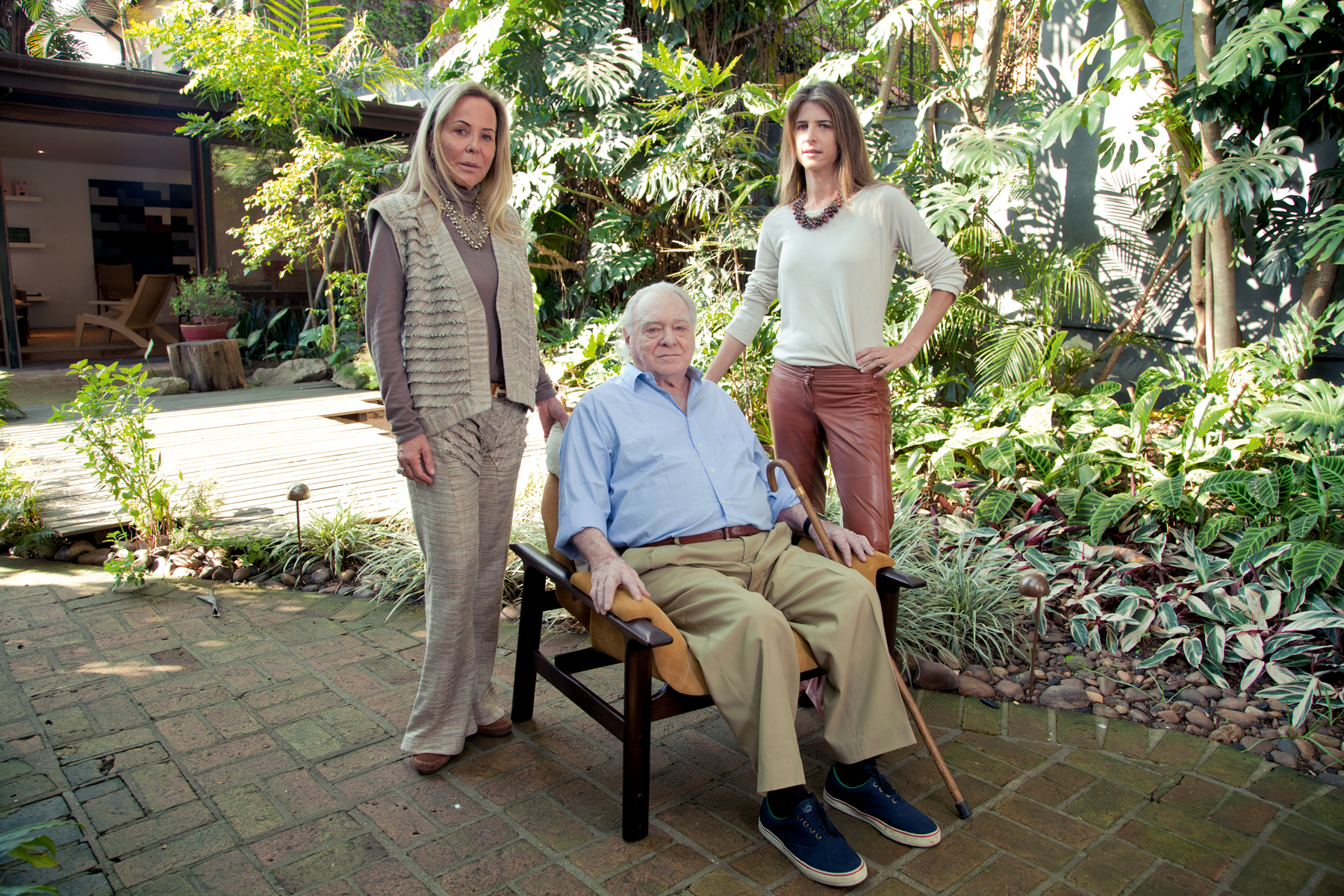 Remembering legendary Brazilian modernist Jorge Zalszupin (1922-2020)
Remembering legendary Brazilian modernist Jorge Zalszupin (1922-2020)Retracing the ‘succession of miracles’ from Jorge Zalszupin, an icon of Brazilian design who has passed away aged 98
By Scott Mitchem
-
 World View: Letter from Brazil
World View: Letter from BrazilThe World View series shines light on the creativity and resilience of designers around the world as they confront the challenges wrought by the Covid-19 pandemic. Working with our international contributors, we reach out to creative talents to ponder the power of design in difficult times and share messages of hope. Brazilian designers have been characteristically composed, and coming together in the face of the country’s mounting crisis, reports Scott Mitchem
By Scott Mitchem